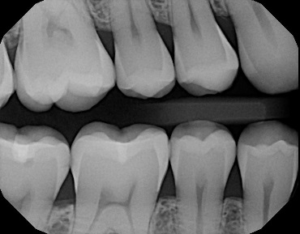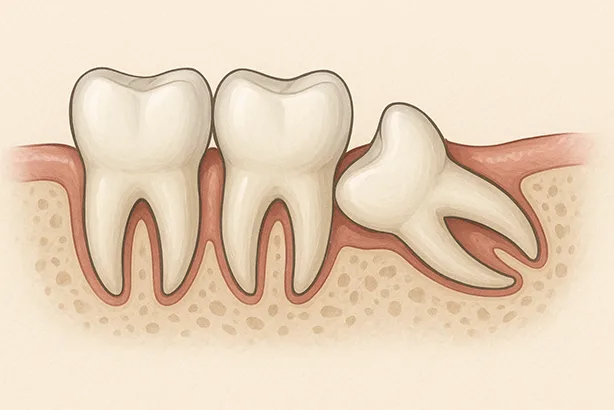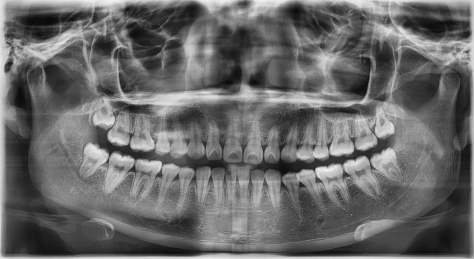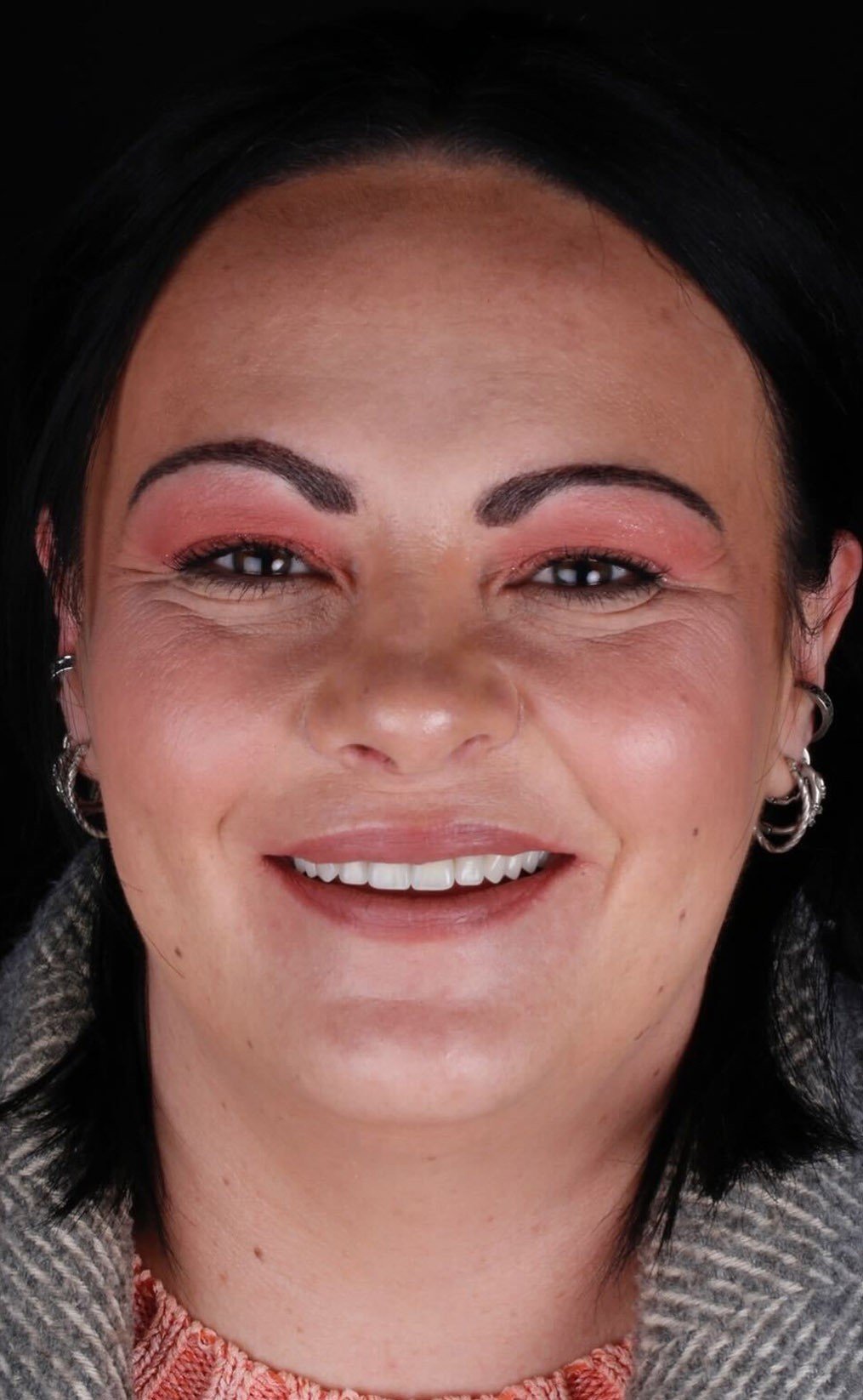Dental X-rays are detailed images of teeth and jaws using Ionising radiation (X-rays).
X-rays use a low level of electromagnetic radiation for a very short time to capture images of the mouth. This is able to pass through soft tissue and provide an image of bones, including your teeth and jaws. X-rays can be captured on film or via digital sensors.
This is an example of a routine dental X-ray image:

Why Do We Take X-rays?
Dental X-rays help dentists to make a diagnosis. They allow surfaces of the teeth and jaw bone to be checked that cannot be seen otherwise. This helps with the correct treatment planning and monitoring the health of your teeth.
Without dental X-rays dentists would not have enough information to offer the most appropriate treatment for you.
How Often Should I Have Dental X-rays?
Your dentist will decide how at risk you are of developing tooth decay and based on this risk assessment you may have your dental X-rays repeated on a more frequent basis.
For example, if you are at high risk of developing tooth decay your X-rays may be repeated every 6-12 months.
It is important to have regular check ups and X-rays in order to pick up and treat any tooth decay early.
Are Dental X-rays Safe?
Dental X-rays are regarded as safe, though technically they do have some risk, but typically the benefit of having an X-ray far outweighs this. For reference the NHS advises that a typical dental X-ray has a less than 1 in 1,000,000 chance of causing cancer. You can view more information here.
For this reason a dental X-ray must be approved by a specialist (usually a dentist) who has agreed that the benefit of taking them is far greater than the small risk from X-rays.
Staff at the Vallance Dental Centre are well trained to deliver the best X-ray images using the lowest amount of radiation possible. All equipment is regularly checked and maintained to ensure your safety.
Please contact us if you have any concerns about dental X-rays.
How Much Radiation is there in a Dental X-ray?
Day to day we receive ionising radiation from the food we eat and radioactivity in the air.
The dose of a dental X-ray is very small in comparison to other types of X-rays.
Comparing Dental X-ray Radiation Dose
It can be compared to:
- The amount of background radiation in the environment, over a few days.
- 1.5 hours on an airline flight
- Eating 50 bananas
Frequently Asked Questions
-
How Much is a Dental X-ray?
The cost of a dental X-ray varies depending on your dental practice. In the UK it is common for a dentist to take a dental X-ray when new patients sign-up to a practice. This is often included in a Registration examination.
For reference, at The Vallance Dental Centre, a ‘Private’ Registration examination in Manchester, UK costs £75. Contact us today to make an appointment.
For NHS patients, a dental X-ray can be included within Band 1 course of treatment (£25.80 at the time of writing, as of September 2023). View more information on NHS bands here.
-
Are Dental X-rays Safe?
It is common for patients to have concerns about the exposure to radiation during an X-ray. However, this is only a low level of radiation on a small area of the body for a fraction of a second.
Generally X-rays are regarded as safe and the benefits of having one outweighs the small risks of doing so.


